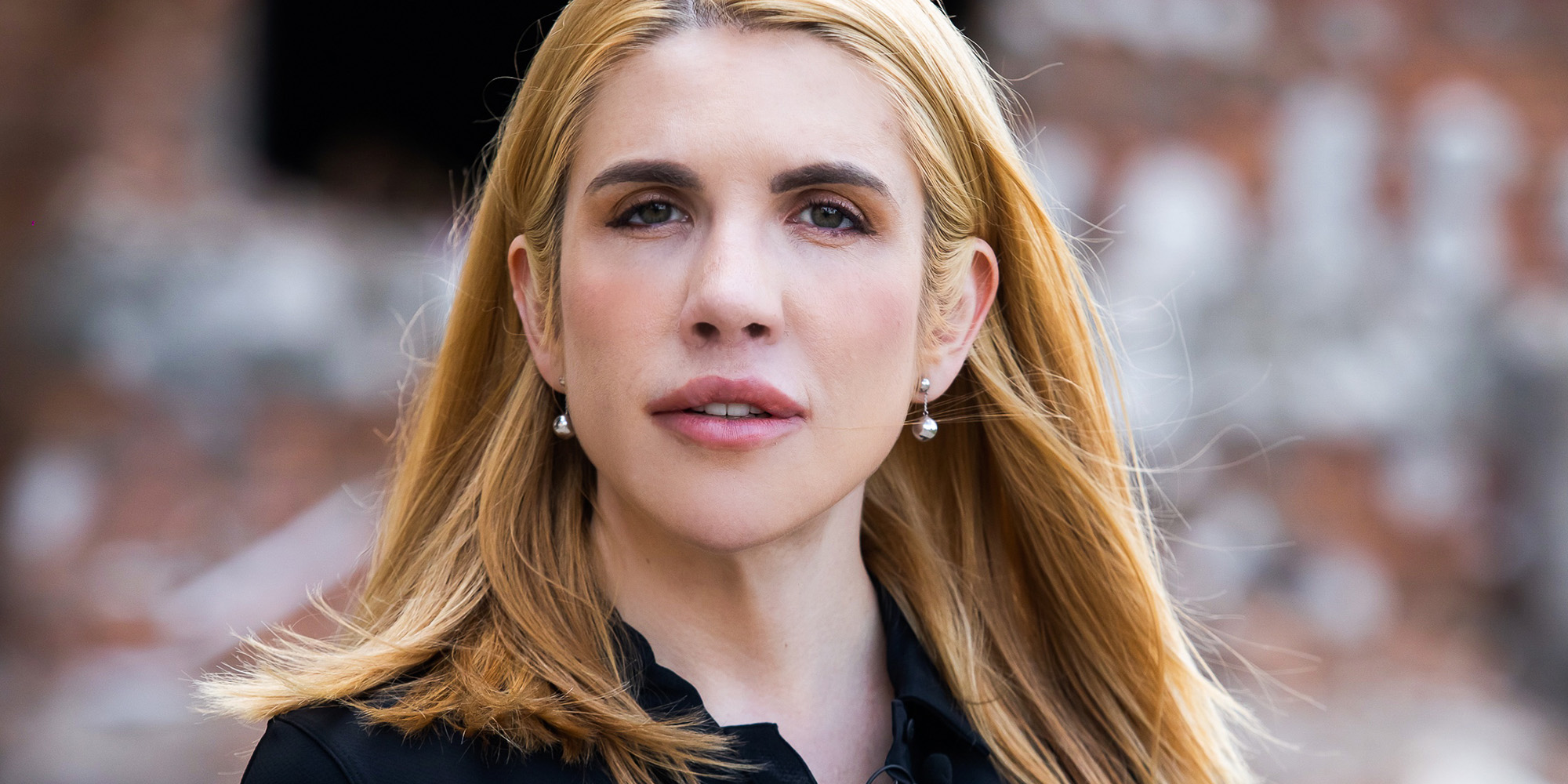Ukrainian MP Kira Rudik has implored African leaders who haven’t shown support for Ukraine to rethink their stance before a special United Nations General Assembly session on Russia’s recent declared annexation of four Ukrainian territories.
Such support would be “a statement that the country supports the future of democracy, anticolonialism and is not supporting tyranny and dictatorship by Russia”, Rudik told Daily Maverick.
If Russia’s actions were not condemned, it could also backfire for African countries should their neighbours feel they could follow Russia’s example and illegally invade them or annex parts of their territory, she said.
Rudik, who leads the liberal Golos party and is also vice-president of the Alliance of Liberals and Democrats for Europe, was in South Africa for the Africa Liberal Network’s general assembly last week, where she led a discussion on the way forward on the war in Ukraine.
“Three weeks ago I went to the UN [General Assembly] in New York City where all the leaders of different countries gathered,” she said. From the European leaders she picked up that there was “a cohesive view of the war in Ukraine”, but “when I started talking to people out of the democratic bubble, it turns out they see the world differently”, she said. “There is a lot of Russian propaganda.”
She said Ukraine hoped that more African countries would vote in favour of the resolution condemning Russia’s move to annex Donetsk, Luhansk, Kherson and Zaporizhzhia than had voted for the resolution condemning Russia’s aggression in Ukraine in March.
[embed]https://www.dailymaverick.co.za/article/2022-10-10-thorny-crown-vladimir-putin-is-at-risk-of-losing-war-with-ukraine-and-his-own-throne/[/embed]
Twenty-eight of the African countries represented in the UN — just more than half — voted in favour of that resolution, and efforts to get more African countries to support Ukraine have not yet yielded significant fruit.
This week’s General Assembly session, starting on Monday, 10 October, came about after Russia exercised its veto in the UN Security Council to block a resolution condemning the annexation at the end of last month.
The issue will now be taken up by the General Assembly, where no state has a veto. A procedural vote could be held before a European Union-drafted resolution will be voted on to determine whether to grant Russia’s request to hold a secret ballot, a format usually reserved for assembly actions such as the election of UN bodies.
Russia’s UN ambassador Vassily Nebenzia lobbied for a secret ballot in a letter to UN states last week, saying Western lobbying meant “it may be very difficult if positions are expressed publicly”.
The vote will be a measure of countries’ positions on the conflict, and any possible increased support for either side, since it started almost eight months ago.
Restarting exports
Rudik said Ukraine was keen to get exports of its grain moving to Africa again as the conflict has severely restricted the movements of ships out of Ukraine’s ports.
It has also disrupted agriculture, meaning that in some places in the country seeds are rotting because they cannot be planted.
A deal in August meant that some grain could be exported, which Rudik said amounted to 1.6 million tonnes, with 72% going to African countries including Ethiopia, Kenya, Somalia and Sudan.
South Africa has thus far abstained from voting on resolutions on the Ukraine conflict, with leaders saying they want to maintain a non-aligned stance because they support a move to a negotiated peace instead.
South African officials also criticised the language used in the March resolution, calling for the language condemning Russia to be watered down. The final text of the draft resolution up for discussion this week includes support of the de-escalation of the conflict, adding it should be resolved through “political dialogue, negotiation, mediation and other peaceful means” while respecting Ukraine’s internationally recognised borders and in accordance with the principles of the UN Charter.
South African government leaders have recognised that Russia’s actions in February, when it started what it called “military exercises” in Ukraine, were in violation of that charter.
It is not yet clear what South Africa’s position will be this week, or whether persistent lobbying by the West has paid off. This included lobbying by US President Joe Biden, who hosted President Cyril Ramaphosa on a working visit at the White House last month.
Visit Daily Maverick’s home page for more news, analysis and investigations
Rudik said peace negotiations could only succeed if there was trust.
“It will go down to who and what will ensure that [Russian president Vladimir] Putin will not attack us again, and will keep his part of the bargain,” she said, “I have not seen a single world leader who said he will.”
She said the war in Ukraine started eight years ago with Russia’s annexation of the Crimean Peninsula, and nobody intervened to help Ukraine.
But she said the war had to come to an end, and hinted that she believed it would in all likelihood be resolved only by fighting until one side emerged victorious.
“With all the devastation, atrocities and destruction that my country has suffered, we all have one idea in common — that it should end in our generation,” she said.
“We can’t have our children fighting Russia again. We can’t have another generation of Ukrainians suffering what we have suffered.”
She said South Africa could not just look on, hoping that the war would end:
“We know people in Africa are victims of the war Russia started, with the price of food and the grains not being exported from Ukraine.”
Of the 25 African countries reliant on wheat imports from Russia or Ukraine, four received their wheat from Ukraine, according to a UN report. DM





